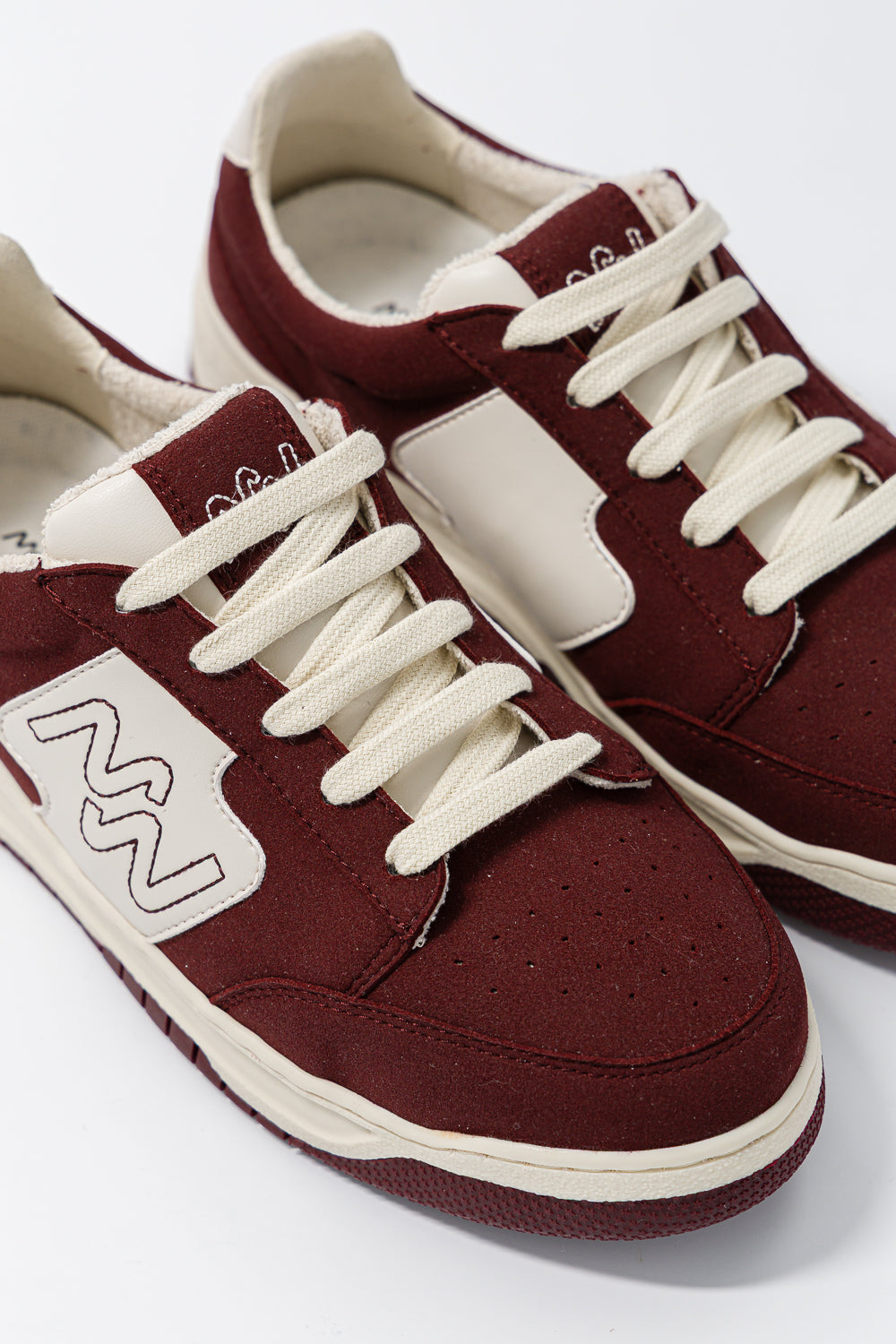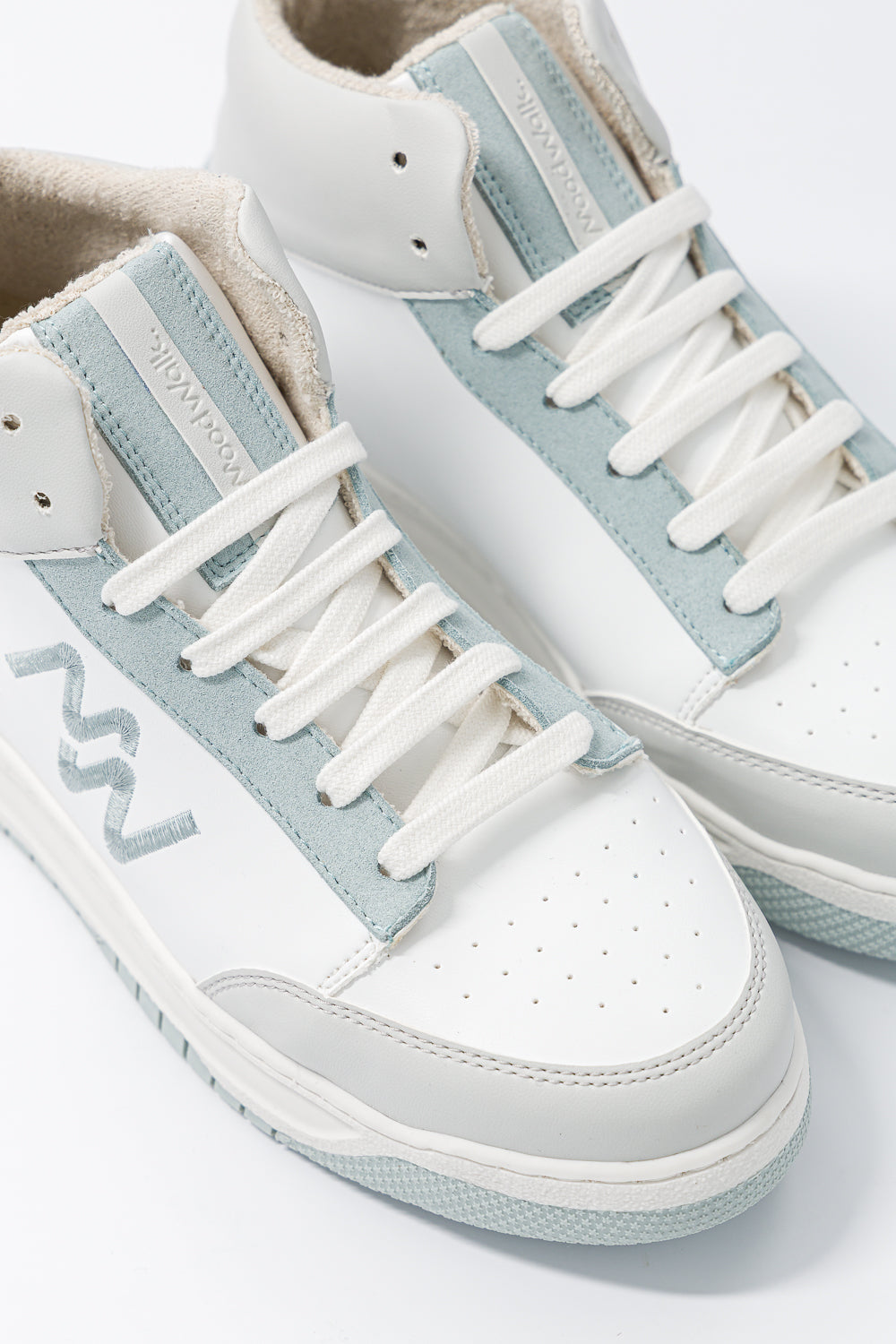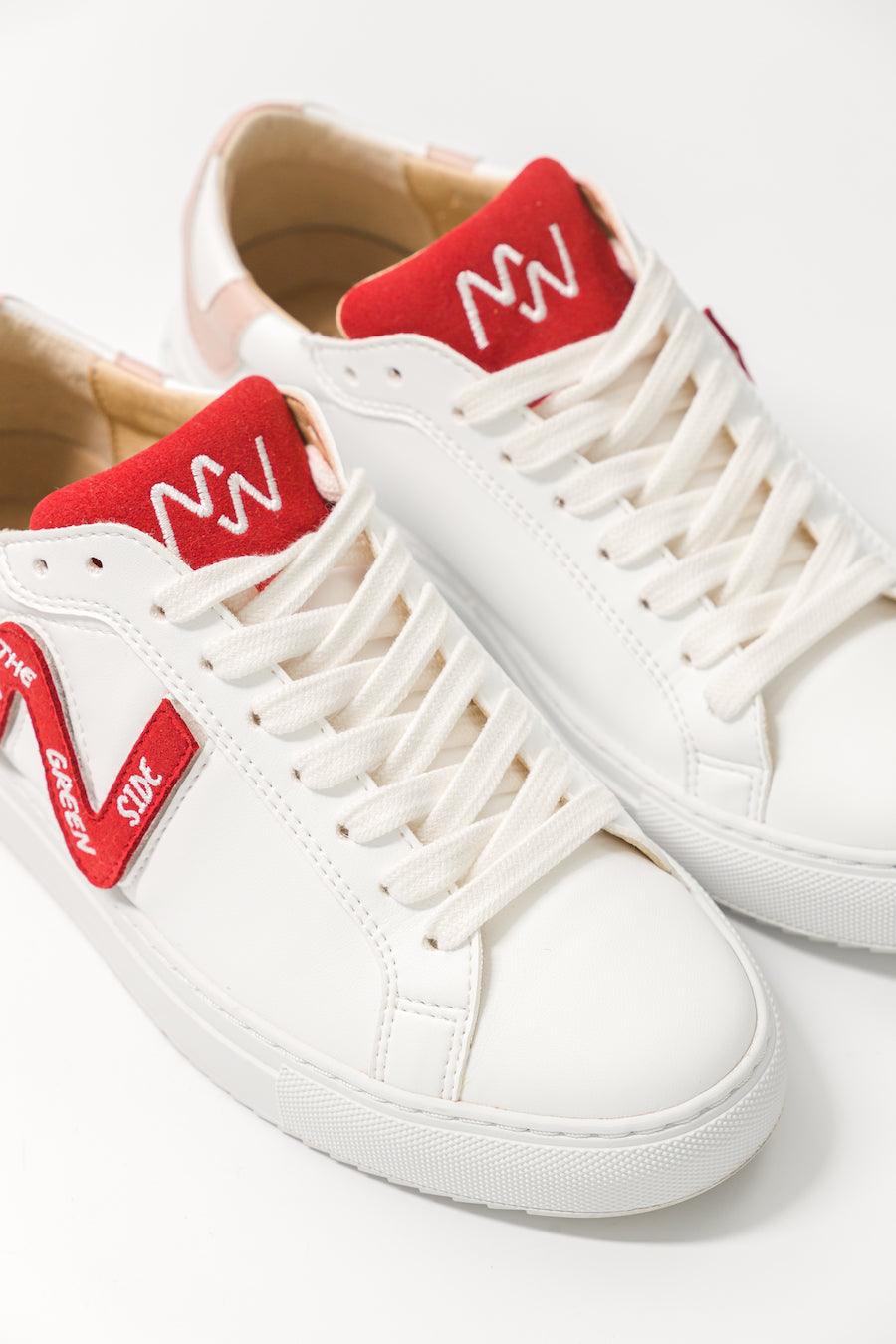Understanding the price of vegan sneakers: a question of transparency
Today, in a market saturated by fast fashion, you can find sneakers for less than €50 produced on the other side of the world. So why can a pair of vegan sneakers made in Europe cost between €135 and €180? The answer can be summed up in one word: transparency .
Behind every pair lies a much more responsible value chain, where people, the environment, and sustainability take precedence over quick profits. Unlike fashion giants that cut corners at every step, committed brands are committed to showing what a pair of ethical sneakers really costs.
The cost of innovative and sustainable materials
One of the first factors that explains the price difference is the materials. Unlike traditional sneakers made from plastic or animal leather, vegan sneakers use innovative and environmentally friendly raw materials sourced locally:
-
“ Corn leather” or other plant-based alternatives (from agri-food waste): a high-end, breathable, and durable material that replaces animal leather. Mood Walk sources its corn-based biomaterial in Italy.
-
Vegan suede: a vegan material that imitates suede, with a refined and durable aesthetic, Mood Walk sources its own in Spain
-
Recycled mesh and cotton: for linings and laces, combining comfort, breathability and waste reduction.
-
Natural or recycled rubber for the soles, guaranteeing flexibility and strength. Mood Walk's soles are sourced from Portugal, close to our manufacturing facility.
These choices are not only better for the planet; they also require more research and technical expertise. As a result, the production cost is much higher, but it ensures quality that lasts over time.
Local and artisanal manufacturing
Another determining element: the place of production.
Vegan sneakers made in Portugal, France, Spain, or Italy don't come off automated production lines staffed by thousands of underpaid workers. They're produced in family-run, human-scale workshops where craftsmanship is paramount and fairly compensated.
Manufacturing in Europe comes at a cost, particularly due to minimum wages, social security contributions, workplace safety, and environmental regulations. But it also means:
-
respectful working conditions,
-
traditional know-how passed down through several generations,
-
an impeccable finish thanks to manual seams and assemblies.
For comparison, the minimum wage in Portugal is €1,015/month (source: Trading Economics) compared to €88 in Bangladesh, €94.50 in Burma or €322 in China. And this is without mentioning the regulated working hours in Portugal, unlike the countries previously mentioned.
Each pair is designed with a level of requirement that guarantees durability and comfort.
At Mood Walk, we regularly visit our workshop in Portugal , which was founded by a shoe enthusiast and his children. It employs experienced craftspeople who work in spacious, bright premises with hours comparable to those in France and fair wages.

Why choosing made in Europe is an ethical choice
A price that reflects real values
In fast fashion, a pair of sneakers may cost less than €10 to produce, but are sold for 10 times more in stores. The margins are enormous, while the workers receive paltry wages.
Conversely, the price of a vegan sneaker made in Europe truly reflects the costs incurred:
-
20 to 30% for materials,
-
20 to 30% for labor,
-
10 to 15% for logistics and transport (much lower thanks to local production),
-
the rest covers design, salaries, advertising and a much fairer margin.
This transparent model allows consumers to know that their money is supporting sustainable and responsible practices, not an exploitative system.
A long-term positive impact
Buying a pair of vegan sneakers made in Europe is not just buying a pair of shoes: it is investing in another way of consuming.
Instead of buying several low-end pairs that quickly wear out, choose a durable pair, designed to withstand time and use.
Additionally, choosing local production significantly reduces the carbon footprint associated with transportation (no cargo ships crisscrossing the planet or long-distance planes). It also limits the number of intermediaries, allowing for stricter quality control and greater transparency for the consumer.
So it's a price that reflects not only the quality of the pair of sneakers themselves, but also a positive impact on the planet and the people who made them.
Paying the true price of respect
Vegan sneakers made in Europe should not be seen as “expensive”, but as a fair price. This price includes:
-
innovative and sustainable materials,
-
craftsmanship,
-
respectful working conditions,
-
a reduced carbon footprint,
-
and real transparency towards the consumer.
By choosing such a pair, we are choosing much more than just a sneaker: we are choosing to give meaning to our consumption, to support more responsible fashion and to move in a more sustainable direction.










